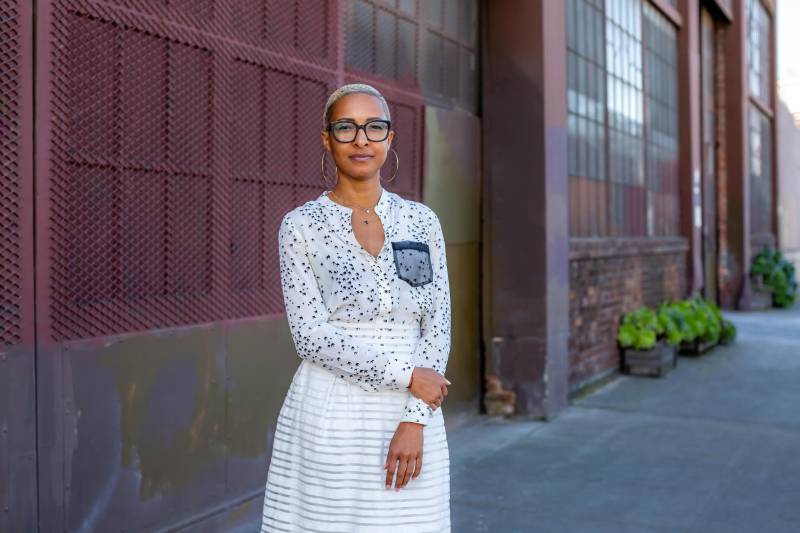Based on what famed historian Howard Zinn referred to as “archival activism,” Summers says the work of the Archive of Urban Futures is to support activities that directly support social justice. “The work to save a guy’s home is social justice and racial justice,” says Summers, referring to a clip from the short film about Moms 4 Housing titled Housing is a Human Right, by Clara Perez. Summers explains that the footage in the film is also “an archive in teaching others how they can fight for their loved ones or even their neighbors.”
Summers describes the archive as “multimodal,” explaining that this isn’t just a set of papers collecting dust in a library.
“We’ve given community workshops and presentations at the Oakland Public Library,” says Summers. “We have a website with documents from the redlining period. Graduate students produced maps showing changes in race and class in neighborhoods, as well as environmental threats.” And she makes it clear: the purpose of the archive isn’t for the benefit of the institution, it’s for the community.
Summers, an African American woman who was raised in East Oakland, was hurt when she learned that upwards of 70% of the unhoused people in Oakland are Black. When asked to make sense of that number, especially in light of conversations about reparations and land reclamation, Summers says, “Time is a loop, it’s a circle. A lot of what we’re experiencing today might look a little different, but it’s something we’ve had in the past.”
She looks back at the Great Migration of the early-to-mid 1900s, where African Americans fled the south in droves to the inner cities of the North, Midwest and West Coast in search of employment. “Black people in the Bay, in Oakland specifically, we were brought here to fulfill certain labor goals,” says Summers. She points out the makeshift housing that was given to the workers — old army barracks and even railroad cars. “There was never an intention for Black folks to have a home here. And I think that what we’re seeing today is not too far from that.”
Oakland is but one example of this issue, Summers says. Similar statements can be made about cities like Detroit, Baltimore and other post-industrial towns that attracted Black folks from the south nearly a century ago.
Broadening the conversation presents a very gloomy outlook for African Americans in this country, as a whole. But that’s why the Archive of Urban Futures urges the community to conjure up a more vibrant vision of what’s to come.
With an ambitious outlook, Summers says, “Black folks have a long history of taking unpleasant things and making them useful and beautiful.”
The Archive of Urban Futures presents The Summer Institute on Sunday, June 2, from 11:30 a.m.–3:30 p.m. at the Oakland Museum of California’s Lecture Hall. A catered reception follows from 4 p.m.–5 p.m. in the California Room. Details here.



